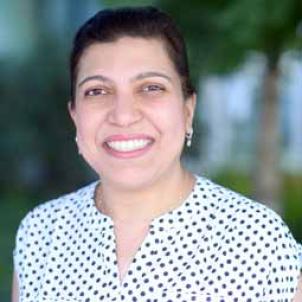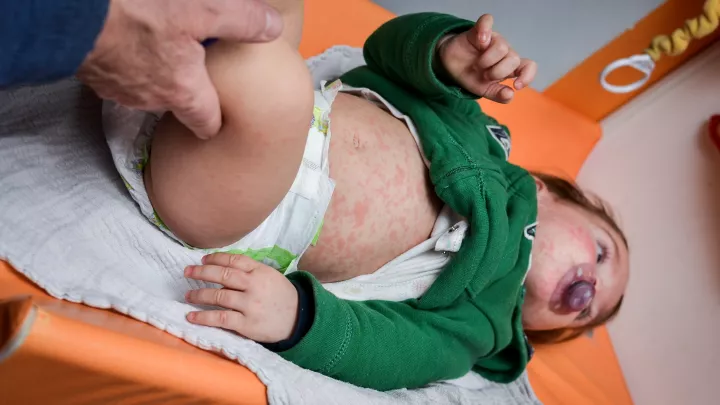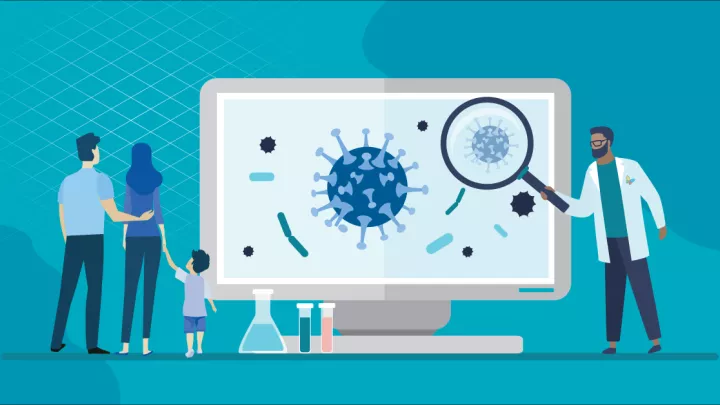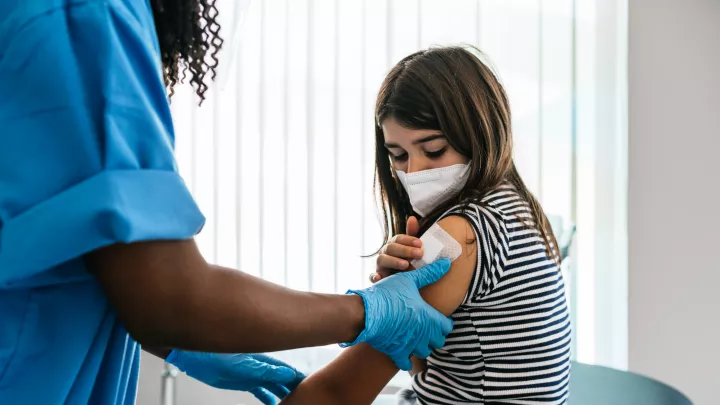
What Does Whooping Cough Sound Like?
When is whooping cough not whooping cough? When you’re dealing with babies, explains Sindhu Mohandas, MD, Attending Physician in Infectious Diseases at Children’s Hospital Los Angeles.
Infants afflicted with the condition don’t make the classic “whoop” coughing sound that toddlers, children, and adults make. And yet these babies are most at risk for life-threatening complications from the illness, which is why vaccination is critical, Dr. Mohandas says.
But essential numbers are trending the wrong way. In 2024, infection rates for whooping cough—also known as pertussis—reached their highest total in a decade, according to Dr. Mohandas, co-Director of the Immunocompromised Infectious Diseases Program. Dr. Mohandas says the increase may have multiple causes, including cyclical patterns in disease and ongoing effects of the pandemic, but decreased vaccination rates is a major factor.
Below, Dr. Mohandas breaks down what whooping cough is, how to recognize and treat it, and how to prevent it, an effort that she says starts with a single word: vaccinate.
What is whooping cough?
Whooping cough is a bacterial infection in the respiratory tract (your airways). For the first few days, it looks a lot like the common cold, with symptoms such as:
- Runny nose
- Mild cough
- Sore throat
- Mild fever
After one to two weeks, severe, violent coughing episodes begin. “The cough is due to lots of thick mucus in the lungs and throat, which can make it hard to breathe,” Dr. Mohandas says.
What are the symptoms of whooping cough?

Symptoms in infants: The reason small babies do not demonstrate the “whoop” in whooping cough is that they can’t cough as powerfully as older children, teens, and adults. Instead, they can exhibit significant respiratory distress.
“Babies can have short periods where they stop breathing, called apnea,” Dr. Mohandas says. “They may gasp for air and struggle to breathe.”
If your baby is showing these symptoms, seek medical help immediately.
Symptoms in children: In toddlers and children, coughing spells often last a minute or longer and can cause:
- A loud "whoop" at the end of the cough—the sound of the child trying to get air back into the lungs
- Vomiting, which may follow the cough and the whoop
- Bleeding in the eyes, or bleeding under the conjunctiva—the clear membrane covering the white part of the eye—as the result of intense coughing fits that can cause blood vessels to rupture
- A broken rib, from the force of the cough
How can whooping cough be prevented?
Vaccination is the best prevention tool. The whooping cough vaccine has two variations. The DTaP vaccine is for children between the ages of 2 months and 7 years, while the Tdap is the vaccine booster for everyone over age 7. (Both protect against diphtheria, tetanus, and pertussis, hence the initials.)
Babies younger than 2 months old are too young to be vaccinated and account for most pertussis-related deaths, Dr. Mohandas says. However, pregnant women can safeguard their babies by getting vaccinated between 27 and 36 weeks of their pregnancy. “Vaccination during pregnancy helps pass on protective antibodies to the baby before birth,” Dr. Mohandas says. If delivered to the mother during pregnancy, the Tdap vaccine is 78% effective in preventing pertussis in infants under 2 months old.
Infants and children should receive a dose of the DTap vaccine at 2, 4, 6, and 15 months as well as at some point between the ages of 4 and 6. Children need a total of five doses to be protected from severe pertussis.
Preteens and teens ages 11 years and older should receive a dose of Tdap.
Adults should receive at least one dose of Tdap.
How is whooping cough treated?
Whooping cough is treated with antibiotics, though the cough can last for 10 weeks or more. While it doesn’t stop the illness, antibiotics may decrease the duration of it—perhaps from 10 weeks to six or seven weeks. Antibiotics also will make your child less contagious to others.
It’s important to note that babies typically catch whooping cough from an adult. The way to avoid whooping cough altogether is to get vaccinated—including the adults in the household. If you think your child may have the infection, see a doctor right away.


